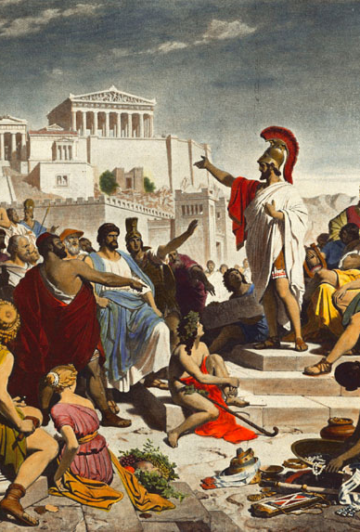
Statesmanship
Hugh Liebert and Diana Schaub
Hertog Foundation | 2018
What makes political leaders great? In this two-week seminar, students will examine the idea of statesmanship through a classic text on the subject — Plutarch’s Lives — and then turn to a study of the speeches and deeds of America’s greatest statesman: Abraham Lincoln.
Over the first week, led by Professor Hugh Liebert, author of Plutarch’s Politics, students will study selections from Plutarch’s Parallel Lives. A “bible for heroes,” as Emerson put it, the Lives aimed to shape readers’ souls by uncovering the virtues and vices of the greatest Greeks and Romans. But the Lives were far from works of hagiography. They were a reflection on the fundamental problems of politics: the nature of republican government, the temptations of empire, the rise and fall of regimes. It was not only for inspiration, but for instruction in such matters that American statesmen like Hamilton, Lincoln, and Truman turned to Plutarch. This week will approach the Lives in their spirit. Students will read three pairs of Lives – Solon/Publicola, Pericles/Fabius, and Phocion/Cato – in order to consider how the birth, peak, and fall of republican regimes reveal the nature of statesmanship.
The second week, led by Professor Diana Schaub, delves into the American essence through reflection on Abraham Lincoln’s speeches and writings. Lincoln is often credited with having saved or re-founded the American Union by giving it a “new birth of freedom.” He is also often recognized as the creator of a new form of public speech. In this course, students will seek to understand Lincoln’s statecraft in conjunction with his literary craft. Throughout the course, students will inquire into the nature of political debate and argument, the role of passion and reason in public speech, and the legacy of the Founding (with particular reference to the issue of slavery).
Image: Philipp Foltz, Pericles’ Funeral Oration, 1877